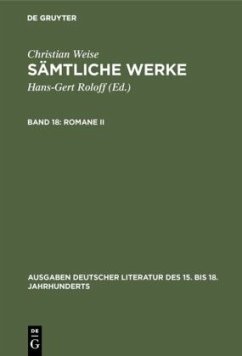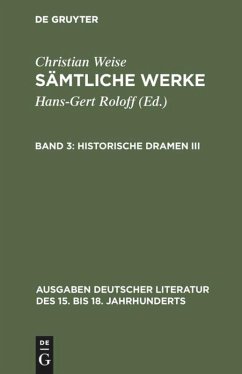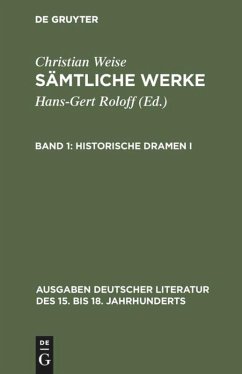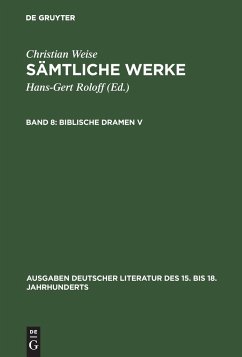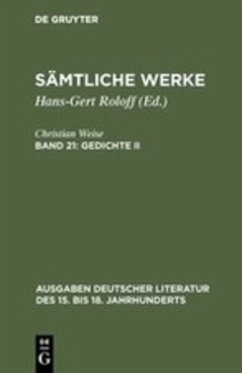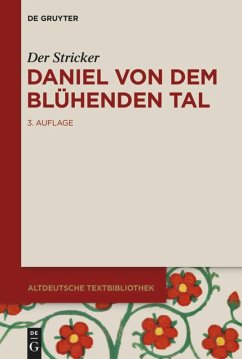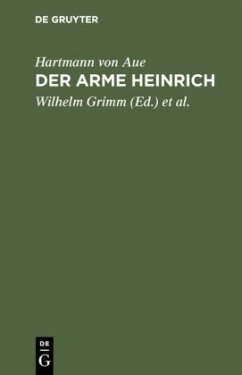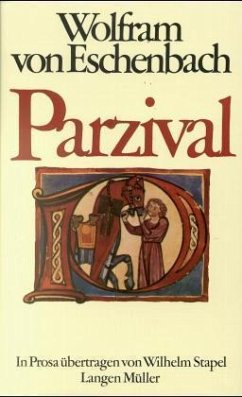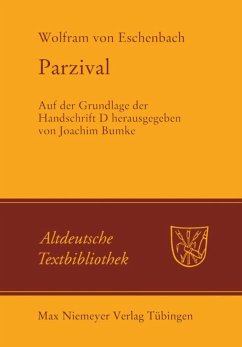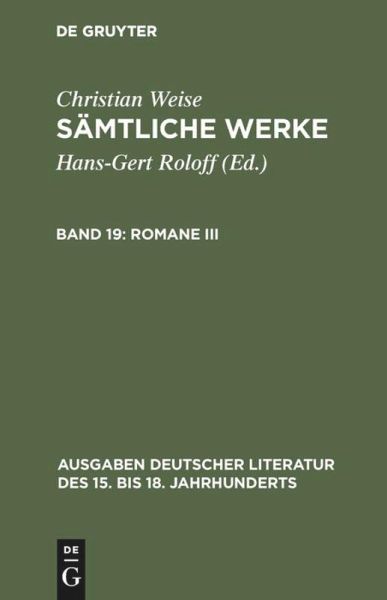
Romane III
[Der politische Näscher]
Herausgegeben: Roloff, Hans-Gert; Susen, Gerd-Hermann
Versandkostenfrei!
Versandfertig in 6-10 Tagen
209,00 €
inkl. MwSt.

PAYBACK Punkte
0 °P sammeln!
Volumes 17 to 19 of Christian Weise's Complete Works present what are known as his political novels. The novels are highly significant for the history both of the genre and of society. Weise composed them as symbols of his political philosophy and wrote them for the training of the new caste of bourgeois officials, who had to behave 'skilfully' - i. e. 'politically' - in the service of the courts. The four novels are of central importance for Middle German literature in the second half of the 17th century.
Christian Weises sog. politische Romane werden in den Bänden 17 bis 19 der Sämtlichen Werke vorgelegt: Band 19 enthält "Der politische Näscher" (1676). Sie sind in gattungs- und sozialgeschichtlicher Hinsicht höchst aussagekräftig. Weise hat sie als Sinnbilder seiner politischen Lebenslehre gestaltet und für die Ausbildung der neuen Kaste der bürgerlichen Beamten, die sich in höfischen Diensten geschickt - eben 'politisch' - verhalten mussten, geschrieben. Die vier Romane sind Zentraltexte der mitteldeutschen Literatur der zweiten Hälfte des 17. Jahrhunderts und haben ihre Entsprechungen in den etwa gleichzeitigen Romanen von Johann Beer und Johann Riemer. Alle drei Autoren waren zur Zeit der Abfassung ihrer Romane in der mitteldeutschen Residenzstadt Weißenfels tätig. Die Romane Weises haben in ihrer Zeit reiche Verbreitung gefunden und sind mehrfach bis ins 18. Jahrhundert aufgelegt worden. Die Überlieferungsgeschichte des einzelnen Textes wird den Editionen jeweils beigegeben.



